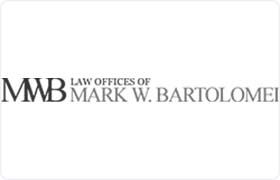CHILD
(1) A son or daughter of any age, sometimes including biological offspring, unborn children, adopted children, stepchildren, foster children and children born o...
(more...)(1) A son or daughter of any age, sometimes including biological offspring, unborn children, adopted children, stepchildren, foster children and children born outside of marriage. (2) A person under an age specified by law, often 14 or 16. For example, state law may require a person to be over the age of 14 to make a valid will, or may define the crime of statutory rape as sex with a person under the age of 16. In this sense, a child can be distinguished from a minor, who is a person under the age of 18 in most states. A person below the specified legal age who is married is often considered an adult rather than a child. See also emancipation.
 x
x

 Mark Bartolomei Worcester, MA
Mark Bartolomei Worcester, MA AboutLaw Offices of Mark W. Bartolomei
AboutLaw Offices of Mark W. Bartolomei Practice AreasExpertise
Practice AreasExpertise
